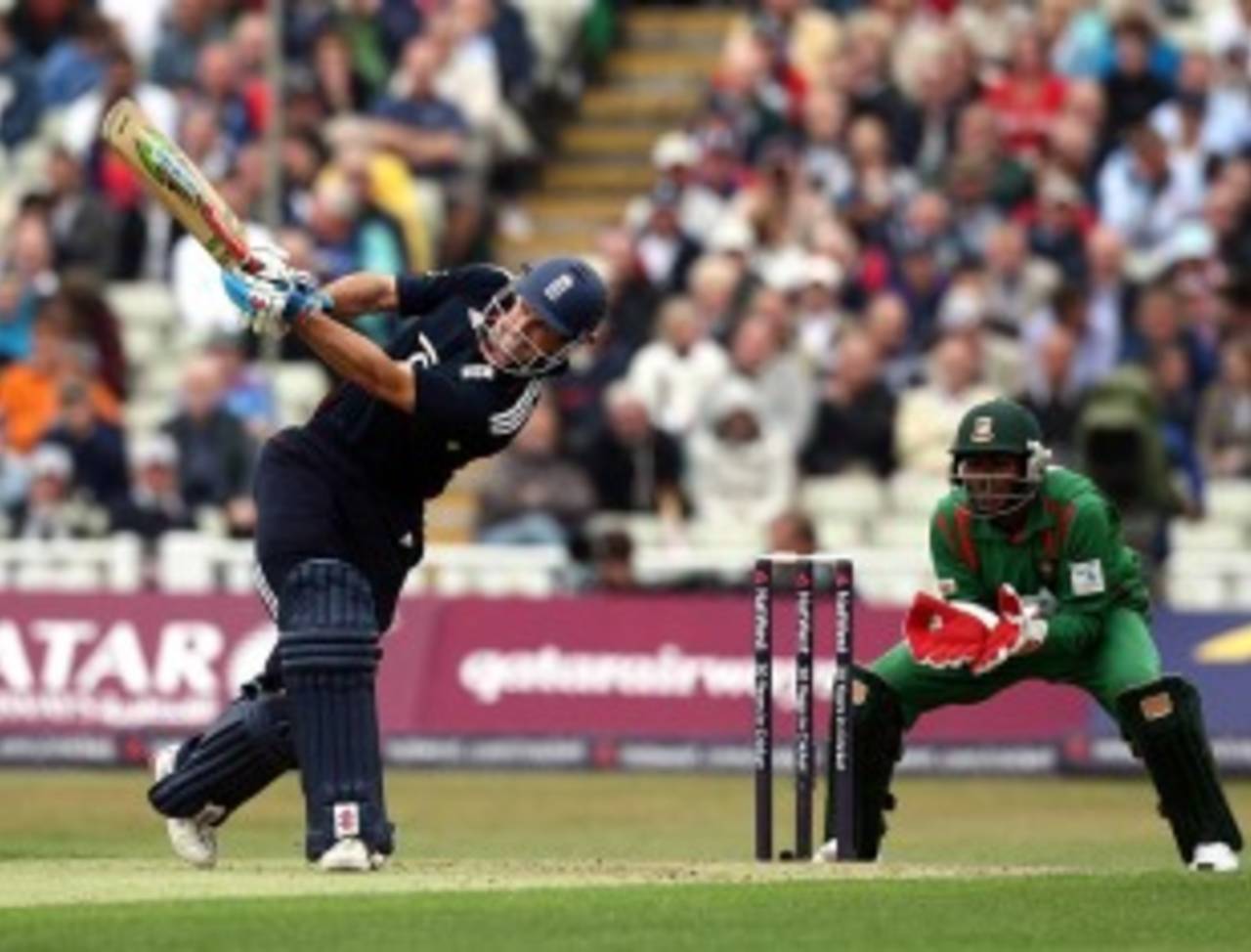Improving players
If he can discipline himself to be a Test player, Afridi has the talent for eventual greatness
Mike Holmans
25-Feb-2013

Monday's innings against Bangladesh gives us a strong clue about how Strauss is reinventing himself • PA Photos
“I guess how Strauss reinvents himself for 50-overs ODI will decide how compelling a case England makes for World Cup glory. Right now, it is hard to see the purist shine in a difficult ODI situation … Strauss will need to go the Martin Crowe way (1992 World Cup) to take this side all the way," says Kunal Tageri, commenting on my piece "The joke's no longer on England"
Monday's innings against Bangladesh gives us a strong clue about how Strauss is reinventing himself. In posting the third-highest individual score by an England player in an ODI, he surpassed his own 152 against the same opponents five years ago. He actually scored slightly faster in that 2005 game as England rattled up 391, but the big statistical difference is in the sixes column: none in 2005 and five in 2010. And it's not just against weak Bangladeshi bowling that he's been doing it: he cleared the ropes a few times during the recent series against Australia too.
The wagon wheel of his innings yesterday is revelatory. In his early years, fielding captains could leave the arc from extra-cover round behind the bowler to midwicket completely empty and have nothing to worry about because Strauss so rarely played in the traditional V. Yesterday, the sixes were all in that area, and a good fifth of his other scoring shots were down the ground too. Captains are going to have to think harder about how to contain and dismiss him. Strauss was already a successful Test player, so it shows that the good can get better by assiduous practice and working on things in the nets.
Even the excellent can do it: eight or so years ago, Muttiah Muralitharan made right-handed batsmen lie awake all night worrying about how to deal with him, but left-handers like Brian Lara and Marcus Trescothick could pick him off with relative ease since he always bowled over the wicket and lbw was not a consideration. Then, after some unknown time in rehearsals, he unveiled his doosra and started bowling round the wicket as well. Right-handers who had difficulty before were now totally lost while the Laras and Trescothicks could manage only modest scores before perishing. The superb had become supreme.
While Strauss the Test expert has made himself a proper ODI player, the next couple of weeks will show something of whether Shahid Afridi has managed the reverse.
Where Strauss and Murali expanded their technical skills to become better players, “Boom Boom” will have to develop his mental arsenal. There were signs of it in the World Twenty20 Final (of all events) last summer. Afridi played one of the most measured and responsible innings you could wish for; it was calculated and controlled in a way which one had never previously associated with the flamboyant slogger who first burst on the scene.
We have always known that he possesses talent in abundance. Time has meant that he has grown up somewhat – though I hope he never loses his impish streak – and being given the responsibility of captaincy demands that he grows up even more. It is important to any team's success that the captain sets an example of commitment and focus, but when it comes to Pakistan, it is probably the single most important factor in which of their various teams turns up on the day.
If he can discipline himself to be a Test player, Afridi has the talent for eventual greatness. He is the kind of player whose good performances are majestically inspirational, and his on-field demeanour suggests the generosity of spirit shown by Fred Flintoff or Adam Gilchrist.
It may be apparent that I am something of an Afridi fan. Well, your Honour, I'll plead guilty to that: I've always liked watching him. What I would like to do by the end of his career is admire him.